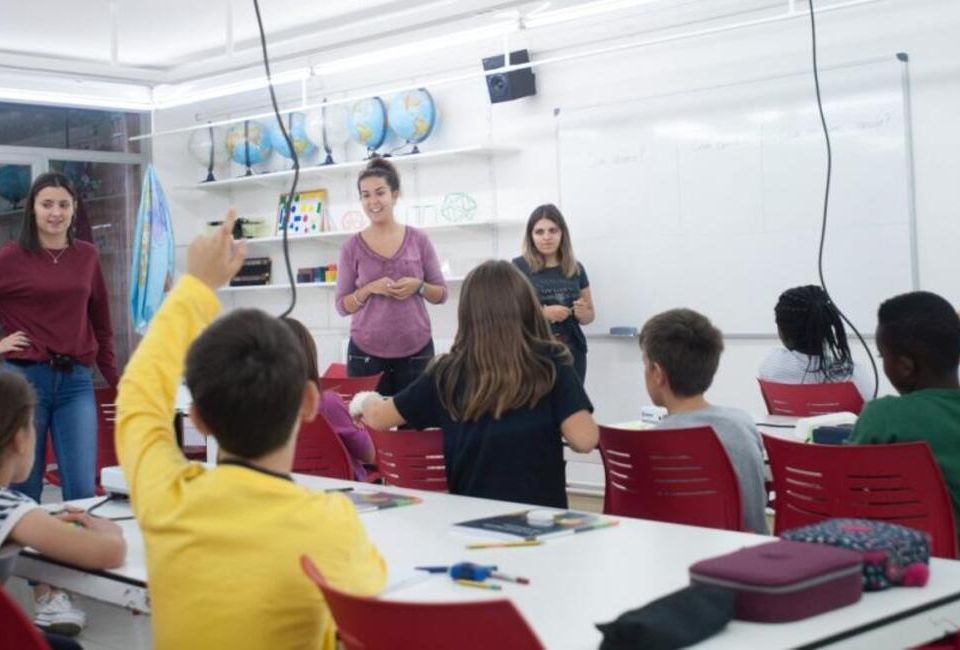
UVic teaching staff lead the production of a guide to the introduction of responsive teaching in initial teacher training
The UVic-UCC Knowledge Construction Research Group (GRECC) has led the project to develop a guide to introduce responsive teaching in initial teacher training. This work has taken place within the framework of the competitive project "The school at the University: a new context for learning to be a teacher," which began in 2020 and ended in July 2023, with funding from the Catalan University and Research Grant Management Agency, within the programme for the Improvement of Initial Teacher Training. Other Catalan universities (the University of Barcelona, the Universitat Autònoma de Barcelona, the University of Girona, the University of Lleida and the Universitat Rovira i Virgili) and the University of Andorra also participated in the project.
Responsive teaching is a way of thinking about teaching in which the knowledge, ideas and reasoning of the children who are learning are foregrounded during the learning process. It is based on the assumption that new knowledge can only be constructed if it is created from, with and about the ideas of children.
Although there is no specific methodology, the research carried out in this field has identified a series of strategies that can help teachers to work in a more responsive and less transmissive way. However, according to Marta Marimon, the lead principal researcher of the project, "responsive teaching is still a challenge for most teachers, and especially for those who are trainees." The lack of benchmarks for responsive teaching during schooling; the lack of confidence in the teacher's own knowledge of the subject being taught; a limited perspective on the resources and capacities that children have when learning specific knowledge, and a lack of knowledge about how to manage dialogues in the classroom so that they help to develop the students' reasoning skills are the main obstacles encountered by future teachers when they have to put this teaching into practice.
That is why in addition to explaining what it is and why it is important in the initial training of teachers, the new Guide for more responsive teaching includes sections that set out the key factors in course design that foster responsive teaching, and how introducing this teaching has an impact on teachers' initial training. It also provides practical examples of the introduction of this methodology in various subjects, such as Didactics of Experimental Sciences, Didactics of Mathematics and first-year courses in Pre-School Teaching from a multidisciplinary perspective.
The School and University programme - a test bank for responsive teaching
The project is part of the School and University programme, organised by the Faculty of Education, Translation, Sports and Psychology, which provides future teachers with an opportunity for real learning. It is a context in which the relationship between academia and professional practice takes place in the Faculty's specialised spaces and laboratories, which become nursery and primary classrooms with the presence of children from local schools. "The School and University programme is a test bed that makes it possible for the university teaching staff to see how the future teachers work in the classroom, which doesn't happen during curricular internships," says Marta Marimon. After the trainee teachers have taught the academic activities, "the collective analysis that takes place after each session provides a great deal of information at all levels," concludes Marimon.
The School and University programme has shown the difficulties that future teachers have in applying more constructive methodologies when they are teaching. According to Marta Marimon, "at the Faculty we strive to provide training on responsive teaching, but we can see that it doesn't always work when they interact with the students, and they are often insufficiently aware or not critical enough when they reflect on their teaching practice from the perspective of responsive teaching." For this reason, the research group has applied for another grant in the Initial Training Improvement Research Grants (ARMIF) call, which has already been granted, in order to test some tools and resources that can help future teachers learn to guide the construction of knowledge through dialogue in the classroom. This new project aims to contribute to improving these future teachers' ability to make the dialogue between teachers and students a key aspect of the process of constructing new knowledge in specific domains, both when planning their teaching and above all, at times when they are working in a real classroom and during critical reflection on their own practice.